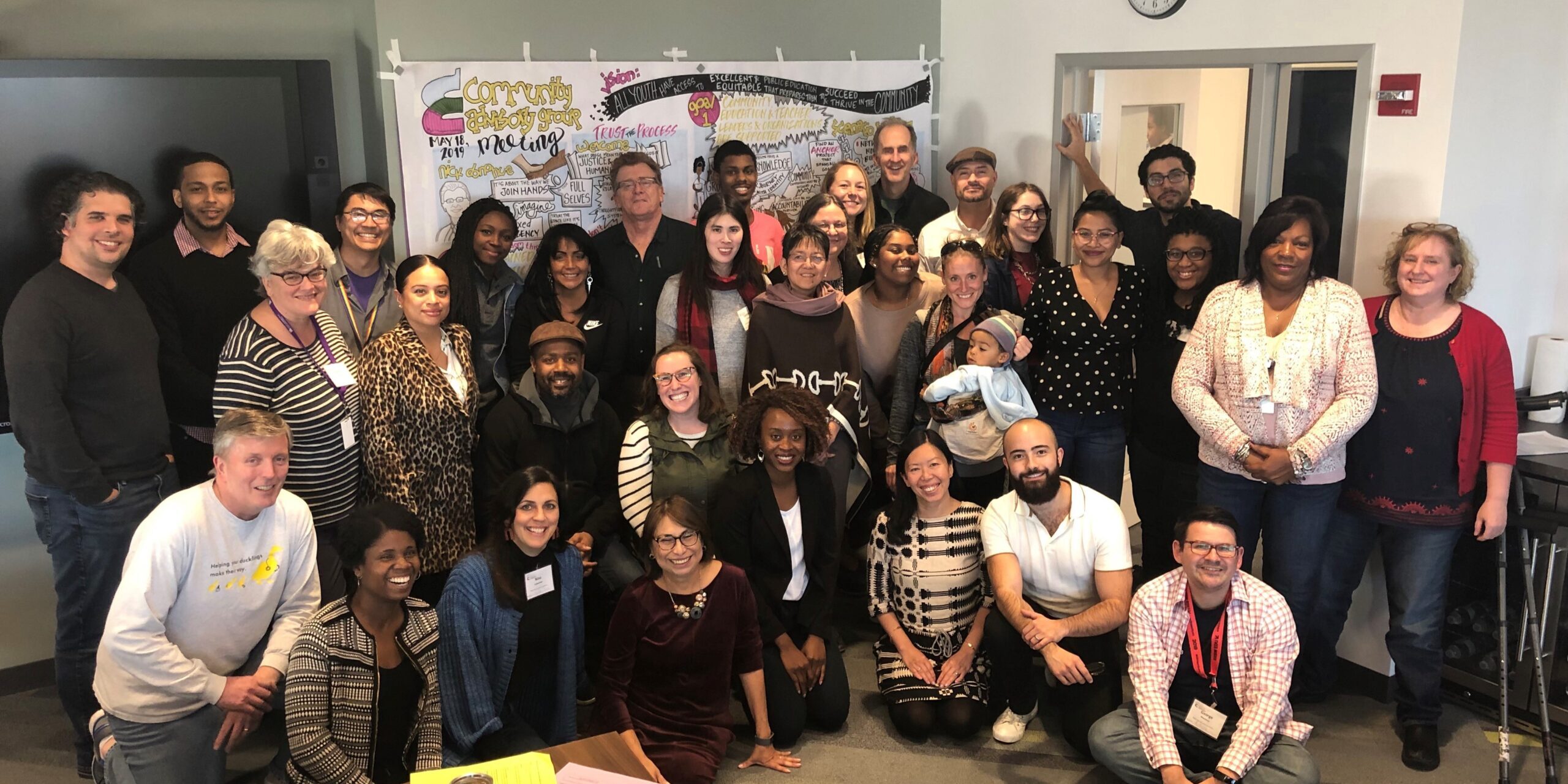Posted by NCRP Impact Awards
NCRP HONORS NELLIE MAE EDUCATION FOUNDATION WITH ITS “CHANGING COURSE” AWARD FOR INCORPORATING FEEDBACK
Massachusetts-based foundation celebrated for authentically folding in stakeholder feedback and realigning their grantmaking strategies in support racial equity in education.
WASHINGTON DC – Even before organized protests in 2020 reshaped the national debate around racial justice, the Nellie Mae Education Foundation was on a journey to review and redesign their organizational strategy, culture, and practices through the lens of racial equity.
Interim President & CEO, Gislaine N. Ngounou, Ed.L.D admits that while the road has not been easy, the Foundation is succeeding in advancing a grantmaking strategy that explicitly focuses on racial equity in education by intentionally shifting practices and co-creating and building strategy with a set of community advisors. The moves also include offering more general operating and multi-year support and co-creating goals and outcomes with grantee partners.
“We continue to see the positive work that happens when communities, grassroot organizations, and educators are provided the space and resources to name and advance their own agenda,” said Ngounou. ” From Portland, Maine, to Providence, Rhode Island, young people and families who have historically been left out of school decision-making are transforming their communities through campaigns to break down the inequities of their education systems. It is their voices who need to be at the forefront of this march toward justice—not ours.”
The Nellie Mae Education Foundation is one of four grantmakers that will be honored at the 2021 NCRP Impact Awards on Wednesday, October 27th. The virtual ceremony is one of many events that are taking place as part of CHANGE PHILANTHROPY’s UNITY Summit, an annual gathering of top philanthropic and nonprofit leaders dedicated to exploring, examining and expanding their individual and institutional practices in order to advance equity with an intersectional lens, and with community at the center of their efforts.
SHIFTING GRANTMAKING TO BETTER SUPPORT RACIAL EQUITY IN EDUCATION
Ngounou stresses that the foundation’s continuing journey to review and reset their organizational strategy, culture, and practices through the lens of racial equity has been an enlightening and rewarding one—full of hope, joy, reflection, and challenges.
“We began this shift when we realized that the goals that we had set out for ourselves could not be actualized without zeroing in on racial equity,” said Ngounou. “We also recognized that if we were truly interested in making transformational change, we’d have to really dig deep and examine the ways that white supremacy culture was showing up within our organizational culture and grantmaking practices.
Over the course of a couple of years, the Foundation built a new grantmaking strategy that sought to explicitly focus on advancing racial equity in public education. But a core piece of implementing this strategy was not only about changing what it funded, but how it funded. Like many institutions in the sector, they had often shown up as funders with “the answers” – giving out grants to folks to see through their own desired ideas.
“After spending a lot of time listening to our grantee partners and external constituencies, we recognized that truly living into our values as an organization meant thinking about and acting on how we shift, share, and wield power,” continues Ngounou. “With this in mind, we built a new grantmaking strategy informed and guided by a set of Community Advisors—folks with the lived experiences and connections to the communities we were seeking to serve through our grantmaking.”
These community advisors played an instrumental role in shaping and forming the Foundation’s new grantmaking strategy and have continued to play a key role since the new focus launched in January of 2020.
“We needed to keep that structure in place to hold us accountable, and to ensure that our work remained driven and reflective of community voices and overall values,” says Ngounou. “To this day, we meet quarterly as a whole with our advisors to get input and direction on our grantmaking practices and strategy, and we also tap various teams and individuals along the way to help us co-create and weigh in on various aspects of work – from the implementation of grant funds to communications, to rapid response funds, to evaluation and learning.”

